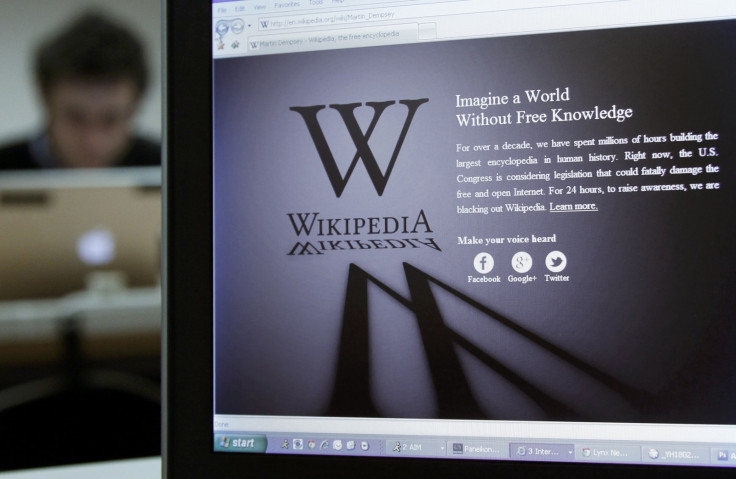Wikipedia: 381 rogue editors targeted small UK businesses and celebrities in blackmail scam

Wikipedia has taken action against a group of cybercriminals who used the website to run a sophisticated blackmail scam targeting hundreds of small UK businesses as well as minor celebrities.
Following several weeks of investigation, volunteer editors working for the free online encyclopaedia discovered that a scam being perpetrated by a group of "sockpuppet" accounts was forcing victims to pay hundreds of pounds in order to "protect" or update their Wikipedia pages.
The victims included a former contestant from Britain's Got Talent, as well as small businesses such as a high-end jewellery shop located in Shoreditch, east London, and a wedding photography business in Dorset.
A total of 381 "rogue editor" accounts were blocked, while 210 Wikipedia pages relating to businesses, business personalities or artists were deleted for having content that was almost purely promotional in nature, as well as containing information that was biased or skewed, unattributed and potentially violating copyright.
A network of fake accounts approving articles for a price
The editors wrote on Wikipedia that they had detected a curious pattern whereby a new Wikipedia page created by a user would fail to pass inspection by the Wikipedia community due to concerns about excessively promotional content or lack of notability.
Then a sockpuppet account would start editing the article and develop it sufficiently to be reviewed again by the community. The sockpuppet would then contact the creator of the page and offer to publish the article for a price, pretending to be a genuine experienced editor on the website.
Once the creator paid the scammers, another sockpuppet account would review and approve the article so that it went live on the website. But in time, the creator would be contacted again and told they now had to pay a monthly fee – $30 (£19.64) in some confirmed examples – in order for the "editor" to continue to protect the page from being deleted or vandalised.
Paid editing is allowed, but only with full disclosure
Paid editing, while not encouraged by Wikipedia, does exist, but the editor must abide by Wikipedia's paid editing guidelines. For example, PR firms might be hired by a company or celebrity to maintain their Wikipedia page, while museums and universities get their employees to keep their pages up to date.
This is permitted as long as the guidelines are followed and the users disclose their official affiliations, and the edits they make are scrutinised by the Wikipedia community. Any other private transactions to charge or receive money for editing a Wikipedia page violate the Wikimedia Foundation's terms and conditions and the edits will be deleted when discovered.
"Readers trust Wikipedia to offer accurate, neutral content, and undisclosed paid advocacy editing violates that trust. Sadly, it also deceives the subjects of articles, who may simply be unaware that they are in violation of the spirit and policies of Wikipedia," the online encyclopaedia wrote in its official blog.
"No one should ever have to pay to create or maintain a Wikipedia article. Wikimedia volunteers are vigilant, and articles created by paid advocates will be identified in due time. The Wikimedia Foundation stands with the Wikipedia community in their efforts to make reliable, accurate knowledge available for everyone."
© Copyright IBTimes 2025. All rights reserved.




















